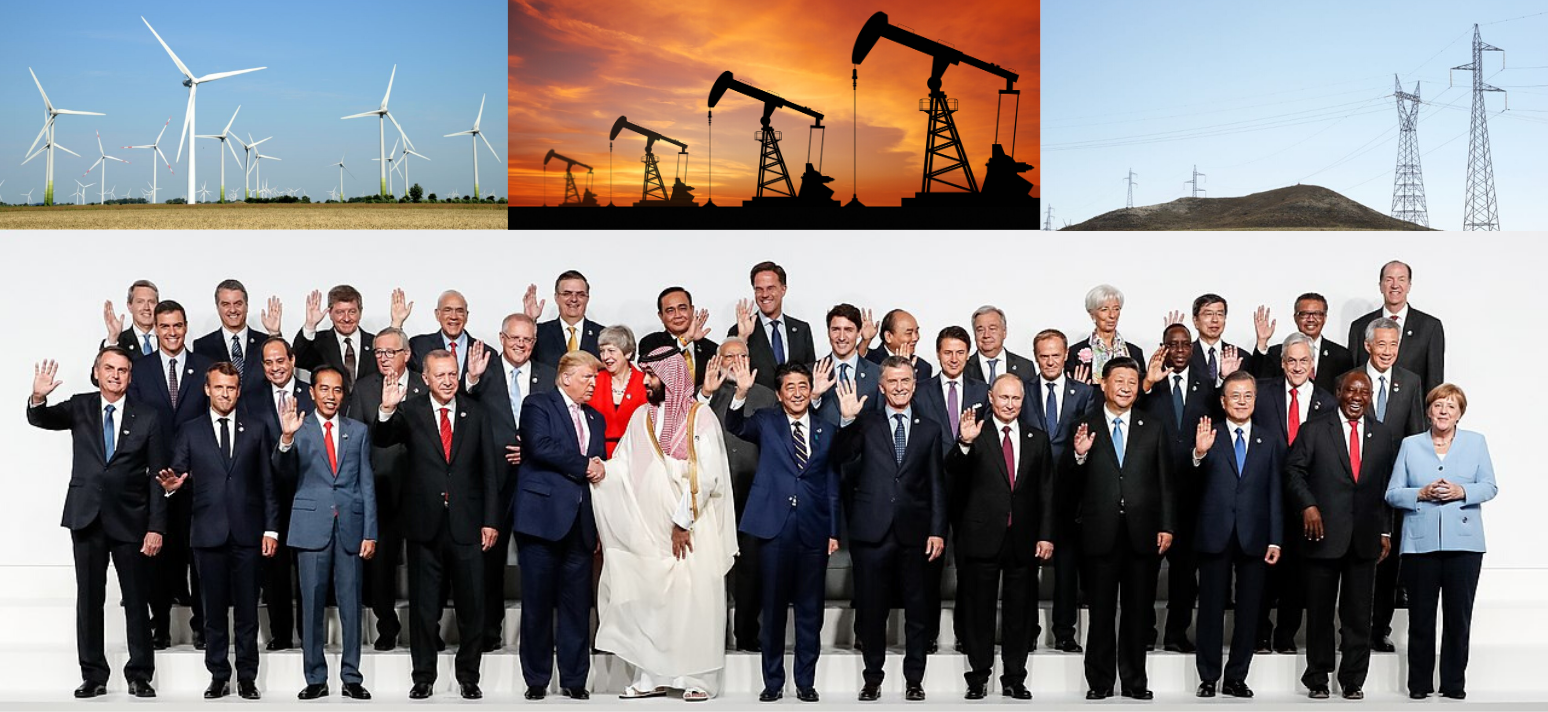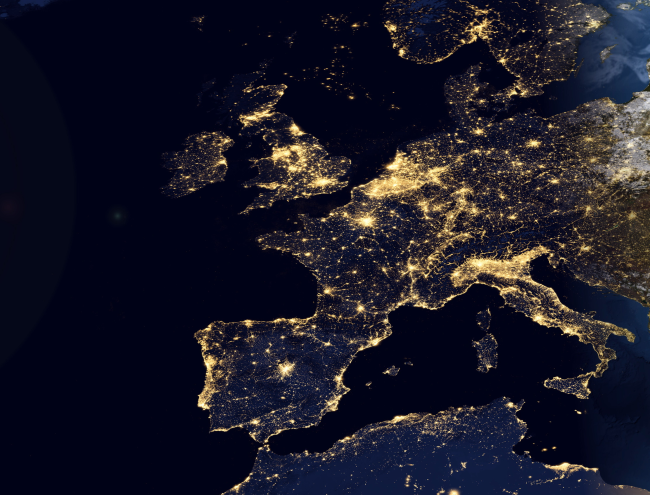Energy, Climate and the Covid-19 Shocks: Double or Quits

The shocks from COVID-19 likely to affect energy and the climate are multiple and unprecedented in scale and scope.
Shocks from collapsing prices due to plummeting and then paralyzed demand combined with overproduction: this is the case for oil, but also to a lesser extent for electricity and gas. Other raw materials are also being affected.
Shocks to investments, because oil as well as electricity companies are experiencing dramatic falls in earnings while waiting for the peak of the pandemic to pass. They are cutting spending and revising or postponing projects. Jobs and smaller company survival are under threat.

Geopolitical shocks with the March collapse of the Organization of the Petroleum Exporting Countries (OPEC+) alliance, tensions between Russia and Saudi Arabia on the one hand, and between United States (US) and Saudi Arabia on the other hand. Both Russia and Saudi Arabia can withstand a year of low prices while still suffering pains, yet have an interest in halting the rise in US crude exports. These tensions come as Mohammed bin Salman seeks to make his succession to the throne safe, as Donald Trump wants to be re-elected and as Vladimir Putin adopts a strong posture and can now lead Russia... until 2036. The economic, political and social stability of numerous poorly-diversified oil, gas and metals producer countries is under threat.
Shocks to public policies and climate governance: while greenhouse gas emissions (GHG) are falling, they may well rise with an economic upturn, whereas cuts of -8% per year to 2030 are required to be on a global warming path of +1.5°C. In the European Union (EU), the Green Deal agenda has been disrupted (the Climate Law and 2030 objectives notably). Some want to bury it in the name of realism.
Carbon prices in the Emission Trading Scheme (ETS) are plunging, making pollution cheaper and destroying investment signals. Support capabilities for low carbon technologies will be more constrained. Across the world, support for other low carbon technologies may suffer – though ultra-competitive solar power may be spared. The COP26 climate conference is postponed as will be the COP15 on biodiversity.
Faced with such shocks, which are still unfolding, some major tendencies and areas of re-balancing can be outlined.
Oil and gas: demand peak, diversification by the “majors”, and a deflating LNG bubble
Oil prices will eventually go up when demand recovers, but this will be progressive as the global recovery will be uneven and as large stocks will have to be absorbed. Market re-balancing could be facilitated if OPEC+ revives sooner or later (possibly informally joined by Texas that produces 4.7 million barrels per day (mb/d). In any case, an ultra deep and concerted cut of at least 10 mb/d seems hard to agree and implement. Saudi Arabia not pushing +2.5 mb/d on the market and a concerted cut of 5 mb/d as from summer looks more realistic, especially since reduced drilling in the US shale will have brought production down. However, many State producers are in such distress that they will try to produce as much as possible, especially if prices rise. Meanwhile, producers, including the US, can talk the price up (10$ for the Brent in past days) and help to avoid it collapsing once global storage capacity is filled.
Rising oil prices may not restore upstream investment though to the pre-crisis level and oil output tensions are expected to follow, helping the price recovery.
The demand peak for oil could henceforth take place between 2025-2028, with less growth in petrochemicals and a rapid stabilization of demand in transport due to higher prices. States will strengthen taxation of fuels and clean mobility will roll out (nearly 10% of car sales in France in January 2020). It will take at least three years for the airline industry to recover, and the cost of air transport should rise, despite lower kerosene prices, due to carbon taxation (in the EU) and the restructuring of the sector. The recovery will not be helped much by low prices that will only be partially passed on to the pump.
A turning point could take place, with a scenario over the medium term combining a global expansion of low carbon technologies (solar notably), an oil demand peak, with a price of $60-$70 per barrel which does not trigger higher investment and additional supplies. Russia and Saudi Arabia, with low extraction costs, could maintain high production levels and would benefit from this, notably if Iran continues to be subject to sanctions, thus depriving markets of substantial output volumes.
Even if prices rise, environmental and financial constraints along with risks will reduce the attractiveness of the oil sector. The majors will benefit from concentration in the sector. They are likely to start or accelerate their diversification and cut their carbon footprint, following a combination of weaker profitability in upstream projects and tougher Environmental, Social and Governance (ESG) standards, difficulties in managing tax burdens from hard-pressed rentier States, and increased security risks.
Present producers of liquefied natural gas (LNG), including Russia, will over time benefit from delays or project cancellations and demand could be driven by low prices (at the expense of coal used for electricity production). The inevitable price rises will however curb the potential expansion of LNG sales in weakened emerging countries, suffering from currency depreciation. In the EU, the low ETS and gas prices should foster gas at the expense of coal, when growth picks up or if there is a cold winter, with savings helping to support real household incomes.
Geopolitics: weaker rentier States and populist regimes, climate governance in tatters
American ambitions for supremacy in oil and gas exports are on hold. Populists like Trump, Bolsonaro and Obrador are facing rising problems. The reputations of Russia and Saudi Arabia have been tarnished among numerous rentier States, whose economic and social stability is being eroded. These rentier States face three scenarios: accelerate their diversification by attracting private and foreign capital, which implies a radical shift in their governance; attempt to hold on, by means of enhanced repression, while waiting for prices to rise; or be destabilized and collapse, as the price recovery can take too long for them to cope, especially if they failed to reform since 2015. The International Monetary Fund (IMF) will have a historic opportunity to provide some of them with liquidity, in return for much needed governance reforms.
While the world breathes again, there is a risk of collapse in climate governance. Trump is already showing that recovery measures can be used to weaken environmental regulation, adding irresponsibility to injury. Yet with the postponement of the COP26 until 2021, the EU will be able to put forward its Climate Law, and will have more time to develop a global benchmark for a sustainable recovery plan and put pressure on recalcitrant members. With cheap oil and gas, all States, including the EU, have a historic opportunity to redirect fossil fuel subsidies towards low carbon technologies such as super competitive solar power. China may choose not to raise its climate ambitions, but to take advantage of crises to strengthen its global influence and continue exporting its polluting technologies. If responsibility for spreading the virus is taken into account, this would constitute an inevitable rupture. In contrast, if China opts for climate cooperation, the credibility of its choice at home and abroad must be ensured. Firmness will still be needed in the EU-China investment treaty. Lastly, Saudi Arabia's G20 presidency would offer an unprecedented opportunity to show responsible behavior, in adopting energy efficiency and air conditioning initiatives alongside the sustainable ocean economy.
A European Green and Solidarity Pact to stimulate recovery
Struggles over economic recovery will follow those concerning COVID-19 and social safeguards. The EU is likely to enter these struggles divided, as illustrated by the refusal of the Netherlands, Germany, Finland and Austria especially to agree to “coronabonds”.
A European roadmap is being prepared at the request of the European Council which calls for a sustainable recovery, without naming the Green Deal. The recovery would be helped greatly by: increasing support for investment in energy effectiveness and efficiency, clean mobility, clean hydrogen, biomethane, nuclear, solar and wind power, as well as smart digital systems and networks where necessary. Procrastination will lead to further job destruction and additional, final costs. Efforts must absolutely benefit European industries and jobs. Cost control will be more necessary than ever. It will be important to make the right choices, to strengthen coordination and planning, as with offshore wind power, and above all to guarantee the predictability of objectives and the means to achieve them. Instead of postponing a decision on strengthening the goals for 2030, setting a clear course by September latest is essential, a minima by -50% greenhouse gas (GHG) reduction, with an upward revision clause by 2025. One thing is clear: the ETS is unable to achieve sufficient decarbonization and electricity markets will be even less capable of triggering the necessary investment. With Europe's taxonomy established, it is time to launch Green Deal Bonds, and to vote an exceptional budget for 2021, and providing the EU with more budgetary resources for the period from 2022 to 2027.
Easing constraints on state aid and budget deficits of the European Stability Pact are steps in the right direction and need to be extended to support investment in low carbon technologies, including nuclear energy. The German Presidency of the European Council should launch a large stimulus of the European budget, having put in place its own unprecedented stabilization program, and so breaking its balanced budget rule which is totally counter-productive in times of war. There is a growing awareness in Germany that the cost of this crisis to public finances will be greater than the cost of reunification. But it is important to remember how the latter succeeded. Berlin will in fact not have much choice: Germany's growth model based on extra EU exports will be compromised in the medium term, and it will have to compensate by domestic and European demand.
It is vital to align measures promoting social justice and climate preservation to avoid rising populism and popular rejection which undermine democracy and confidence in the EU. A carefully-targeted policy of social redistribution, taxing goods and activities which are not essential and polluting, can deliver. Otherwise social and environmental protests will come together in a large movement which could become extreme and affect States and companies. Overcoming the pandemic will be politically hard and conducive to a wave of demagogy, an escalation of demands, a settling of scores and challenges to certain governments. Domestic and foreign disinformation will proliferate. The animosity accumulated by parts of Italy's population against its elites, Brussels and certain European states is deep and potentially fatal if it finds electoral expression. The risks of contagion are also strong. A special effective and concrete effort needs to be made by all actors to help Italy and Spain. The cost of mobilizing solidarity over the next six months to support these countries will be insignificant compared to the fallout from their durable instability and the unraveling of the EU. Towns and territories will be key bridgeheads in the fight against environmental degradation and for sanitary resilience and need to be supported by accelerating their efforts to cut pollution. They need new means and instruments to play this role. That is why the Green Deal must be enlarged into a European Green and Solidarity Pact.
Lastly, this crisis could lead to geopolitical upheavals in Europe's neighborhood, going as far as sub-Saharan Africa. This is where efforts need to be made to improve governance and investment frameworks for low carbon technologies, adaptation to climate change and for sustainable cities.
Download the full analysis
This page contains only a summary of our work. If you would like to have access to all the information from our research on the subject, you can download the full version in PDF format.
Energy, Climate and the Covid-19 Shocks: Double or Quits
Related centers and programs
Discover our other research centers and programsFind out more
Discover all our analysesBrazil One Year Away from the October 2026 General Elections
Brazil’s general elections will be held on October 4, 2026, to elect the president, vice-president, members of the National Congress, governors, deputy governors and state legislative assemblies. For the presidential and gubernatorial elections, a second round will be held on October 25 if no candidate obtains a majority of the votes in the first round.
COP30: An Inflection Point for Climate Action and Governance
The 30th Conference of the Parties (COP30), opening in Belém, Brazil, on November 10th 2025, convenes at a perilous moment.
The Strategic Dimension of Skills in the Clean Industrial Deal
In the competitiveness and energy transition battles, the European Union (EU) must master a determinant factor: skills.
The Energy Transition Faces Geopolitical Challenges. How Can Ideological Divides Be Overcome?
President Trump’s positions and policies, combined with record coal consumption and booming global electricity demand, geo-economic confrontation, and widespread concerns about energy security, are changing the game when it comes to understanding realistic decarbonization trajectories. The war in Europe is intensifying competition between defense and transition budgets. This is also the case elsewhere in the world.












